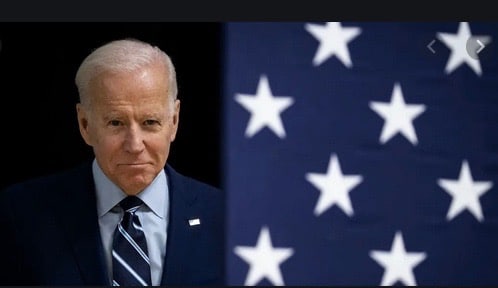TOM PLATE WRITES — Change will come, it has to. But America’s hyper-confident commentariat has convinced itself that China-U.S. policy Democrat Joseph Biden, on track to become the 46th president of the United States, will be stuck in the cement of the New Coldness and would differ little from Trump’s. Please – let us aspire to do better.
Assuming (as I do) the preferred inauguration of the former U.S. vice president in January, America will have to rethink China policy. To be sure, the expected new administration will not have the diplomatic room for lightening maneuvers – and face the searing tattoo of ‘soft on communism.’ But world peace, geopolitical stability and the enormity of roiling climate-change (not to mention the still incommensurable legacy of the pandemic) should knock some common-sense into stubborn heads on both sides of the Pacific Ocean.
In this 21st century, a globe divided against cannot long stand. An urgent question thus goes to Beijing firmly: Is what you have put before all the world to observe really the very best your diplomacy can do? Your souring mood is unnerving and can lead to no good. Throwing so many red chips to the PLA-Navy may not be your smartest bet.
Alas, in some ways China hasn’t figured out how it wants to relate to itself; or whether it even cares, one way or the other, about what the world thinks of it. Still, it’s a puzzle why Beijing still bothers to bug Taiwan – and is so easily bugged by President Tsai Ing-wen. This over-achieving offshore island is not going anywhere internationally. It is cut off from official recognition by the United Nations and unrecognized by the vast majority of its member states. Regionally, it is strategically surrounded, for all its accomplishments, by a rising China operating in its time-honored weiqi style. So, what’s the point? To save Taiwan from further success by mainland military intimidation?
Living with annoyances is part of growing up. Taiwan, while a gem, merits a lower ranking on Beijing’s list of ‘must-do’s’. Believe in the fullness of time, not in weapons of war. Look how poorly dramatic regime change has worked for the U.S. in recent decades (even back to Vietnam). Imagine the better scenario: before long, China and the U.S. rise from the rhetorical ashes of recycled neo-Cold War-isms as dual pillars of global finance – even while grumbling and stuck together like quarrelling mafia families on tiny planet.
We note just last week that, in a telling example, China’s financial authorities put out billions of government bonds for sale. No one had to buy them — investors have many options. With the coronavirus still swirling around, Chinese bonds are hardly the only financial fish waving their tails around the global financial aquarium. If your distaste for all things Beijing is total, but you like the comparative security of government paper, why not dial up – oh — the Danmarks National Bank, happily tendering Danish government debt. And yet, when Beijing offered up a ton of new debt obligations to US buyers – for the first time, directly to them – they were scooped up as fast as the financial ministry could lay them down.
The bottom line: China still sells.
But what China is also selling, and which the world isn’t much interested in buying at the moment, is its vaunted peace offensive. The one thing a ‘charm offensive’ cannot be is charmless. Beijing diplomacy seems formulaic, scripted, leaden. Chinese leaders too often give the impression that China is the sole superlative civilization, just as Americans righteously toot the horn of their ‘democracy’ as if the only superlative governing system. Yet neither colossus has been able to rid itself of poverty, pollution, corruption and government incompetence (this is my short list), though a carefully done 2020 Harvard Ash Center survey concluded that Chinese people actually rate the quality of their governance highly.
For its part, American foreign policy still tries to strike those patented macho poses – but they ring more hollow — and wind up more pointless – with each iteration. Like P.T. Barnum, Secretary of State Mike Pompeo offers traveling circuses of bellowing that are no more convincing than those from the counter-travels of Chinese Foreign Minister Wang Yi. Personally, I wish the Politburo could raise from the dead the spirit of the late Qian Qichen, [Qian Qi Cheng] who, between March 1988 and April 1998, proved to be China’s best in that job since the legendary Zhou Enlai. Today, Chinese thinkers of the highest caliber – for example, Ambassador Fu Ying of the Chinese Academy of Social Sciences (CASS) and Professor Zhu Feng of Nanjing University, to drop just two names — offer hope for better conversations, as long as the Party allows them the intellectual space.
The U.S. public is tired of endless foreign military intervention, as President Trump figured out early on. But it’s easier to initiate overseas interventions than to escape them. (Over the centuries China has all but mastered the discipline of non-mission creep). By next month we should know just how U.S. voters rate the governance of the United States of America over the last three-plus years. Polls now suggest President Trump will not get a second four-year term.
What will be needed is a new geopolitical math: Call it Post-Copernican Calculus. Nations no longer revolve around the U.S. as if planets constrained by political orbit. So Biden’s Washington needs polished new telescopes for clearer, more detailed looks at the geopolitical universe. The scourge of the pandemic alone will require considerable recalibration. That is what Biden’s team must do. And Being must help. In reality, it could not be more obvious or simple.
LMU Professor Tom Plate’s books on China and the U.S. include ‘In the Middle of China’s Future’ and ‘Yo-Yo Diplomacy’. He is vice president of the Pacific Century Institute.

